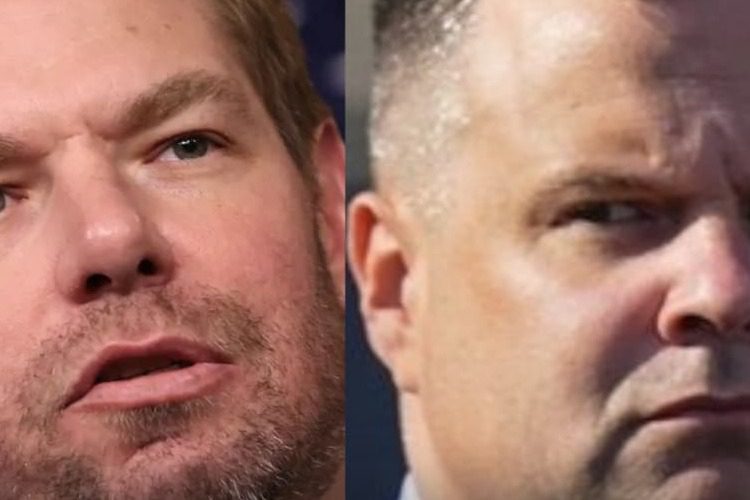Clinton Judge’s Bombshell Hearing: Tish James and James Comey Beg for Mercy as Trump’s Handpicked Prosecutor Lindsey Halligan Faces ‘Illegitimate’ Smear – Will Deep State Darling’s Revenge Plot Backfire Spectacularly?
In the hushed tension of a federal courtroom in Alexandria, Virginia, where the weight of history presses down like an unyielding fog over the Potomac, a legal showdown unfolded on November 13, 2025, that felt less like a routine hearing and more like the climactic unraveling of a long-simmering grudge match. U.S. District Judge Cameron McGowan Currie, a Clinton-era appointee whose measured gaze has presided over countless twists of justice, leaned forward in her seat as lawyers for New York Attorney General Letitia James and former FBI Director James Comey laid bare their audacious bid: toss out the federal indictments hanging over their heads, not on the merits of innocence, but on the flimsy claim that the prosecutor leading the charge—President Donald J. Trump’s staunch ally, interim U.S. Attorney Lindsey Halligan—is somehow “illegitimate.” It was a moment ripe with irony, the kind that tugs at the heartstrings of a nation still buzzing from Trump’s triumphant return to the White House nearly a year prior, where promises of accountability for perceived deep-state overreach have evolved from rally chants into courtroom realities. As arguments flew—sharp, scripted, and laced with the ghosts of past scandals—Currie’s subtle skepticism hung in the air like a verdict waiting to drop, hinting at a ruling before Thanksgiving that could send shockwaves through the corridors of power, freeing two of Trump’s most vocal adversaries or, in a twist of poetic justice, forcing them to face the music they’ve so long composed for others.
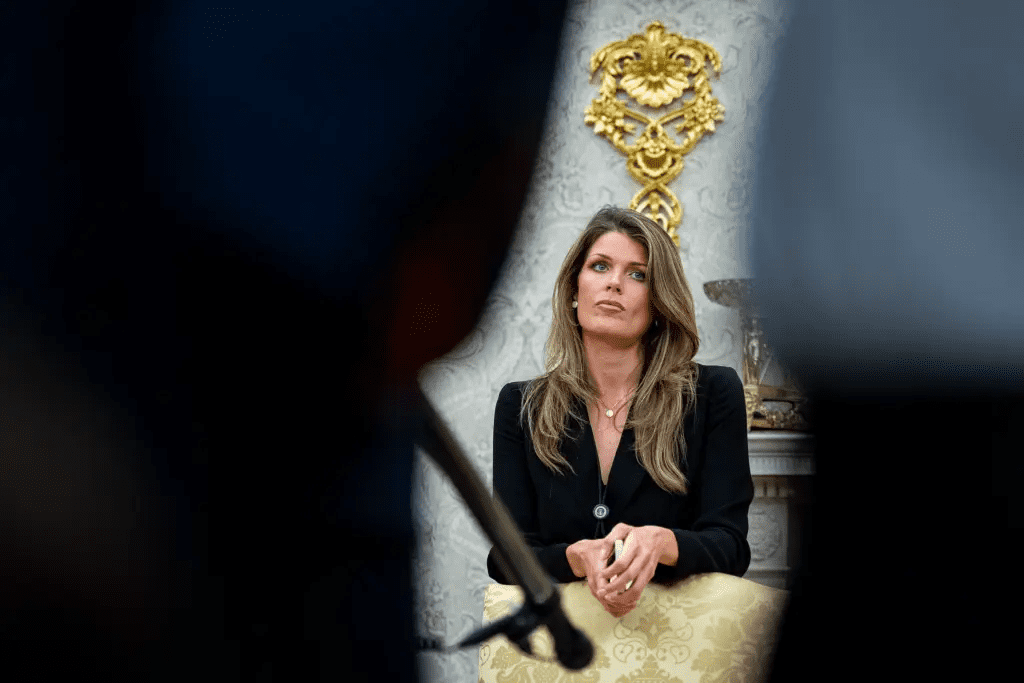
To step into the emotional core of this drama, imagine the quiet resolve of a prosecutor like Halligan, a former beauty queen turned fierce defender of the rule of law, who traded the glamour of pageants for the gritty trenches of Trump’s legal battles. Appointed in the sweltering heat of summer 2025 after her predecessor, Erik Siebert, abruptly resigned amid whispers of reluctance to pursue high-profile cases, Halligan embodies the unyielding spirit of an administration hell-bent on restoring what many see as a weaponized justice system to its impartial roots. There she sat in court, poised between two of her top deputies—Henry Whitaker and another unnamed prosecutor—her presence a silent testament to the stakes. Not a word from her lips that morning, but her very role ignited the firestorm: James and Comey, both indicted on charges that strike at the heart of public trust, now scrambling to paint her appointment as a constitutional foul, echoing the Supreme Court’s July 2024 smackdown of special counsel Jack Smith’s role in Trump’s classified documents case. That ruling, which deemed Smith’s appointment by then-Attorney General Merrick Garland a bypass of Senate confirmation, cleared the path for Trump’s Florida victory and set a precedent that’s now boomeranging back with ferocious speed. For Halligan’s defenders, it’s vindication incarnate—a reminder that the scales, once tilted against the 45th president, are finally balancing under the 47th. Yet, for the defendants, it’s desperation cloaked in legalese, a last-ditch plea from figures whose own pursuits once cast long shadows over Trump’s horizon.
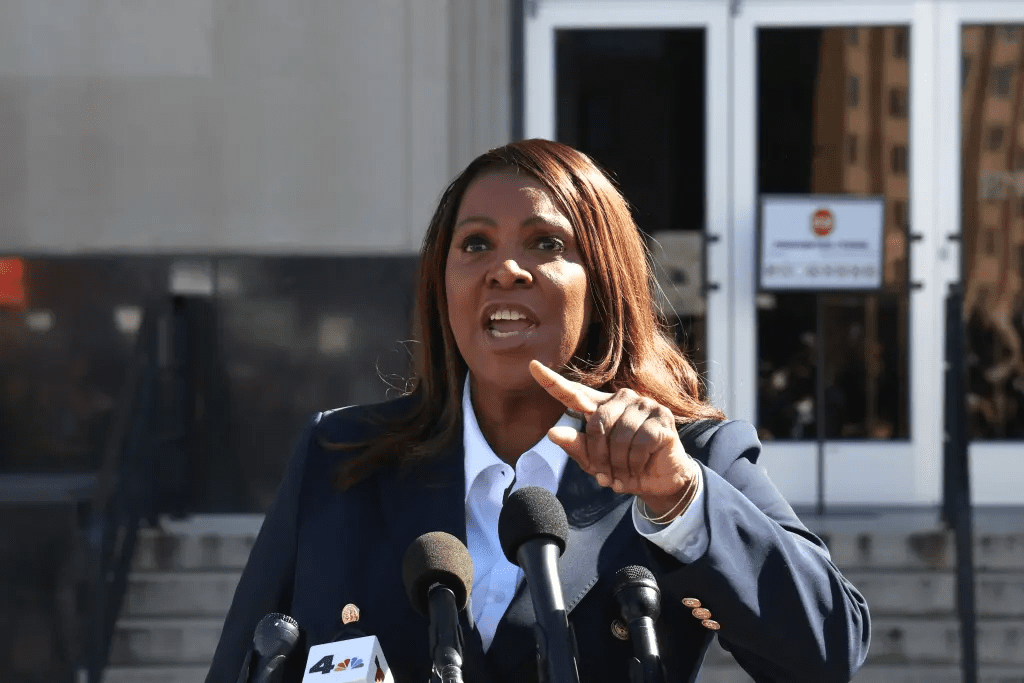
Letitia James’ story, in particular, carries the poignant ache of a rise and potential fall that mirrors the very volatility she once wielded against others. Elected New York’s top cop in 2018 on a wave of progressive fervor, James made headlines—and enemies—with her relentless civil fraud suit against the Trump Organization, culminating in a February 2024 verdict that slapped the family business with a staggering $454 million penalty. It was a blow that tested Trump’s mettle, funding his campaign through sheer force of will, but one that many in his orbit decried as politically poisoned from the start. Fast-forward to July 2025, and the tables turned with a federal grand jury indictment in the Eastern District of Virginia: two counts of bank fraud and making false statements to a financial institution, alleging James misrepresented a modest Norfolk property—purchased sight-unseen on August 17, 2020, with a $109,600 loan from a Virginia credit union—as her primary residence to snag favorable terms. In truth, prosecutors say, her grandniece occupied the three-bedroom, one-bathroom home, dutifully paying rent that funneled $19,000 in illicit savings back to James. She pleaded not guilty in a swift August arraignment, her voice steady but her eyes betraying the flicker of a woman cornered, vowing the charges were nothing but “retaliatory nonsense” from a vengeful ex-president. Absent from Thursday’s hearing, James watched from afar as her attorney, the storied Abbe Lowell—known for defending Bill Clinton and Hunter Biden—argued with the passion of a guardian angel: “This is a politically motivated witch hunt, plain and simple.” If convicted, the stakes are soul-crushing: up to 60 years behind bars and a $2 million fine, a sentence that could shatter the legacy of a trailblazing Black woman who rose from public defender to the Empire State’s chief enforcer.
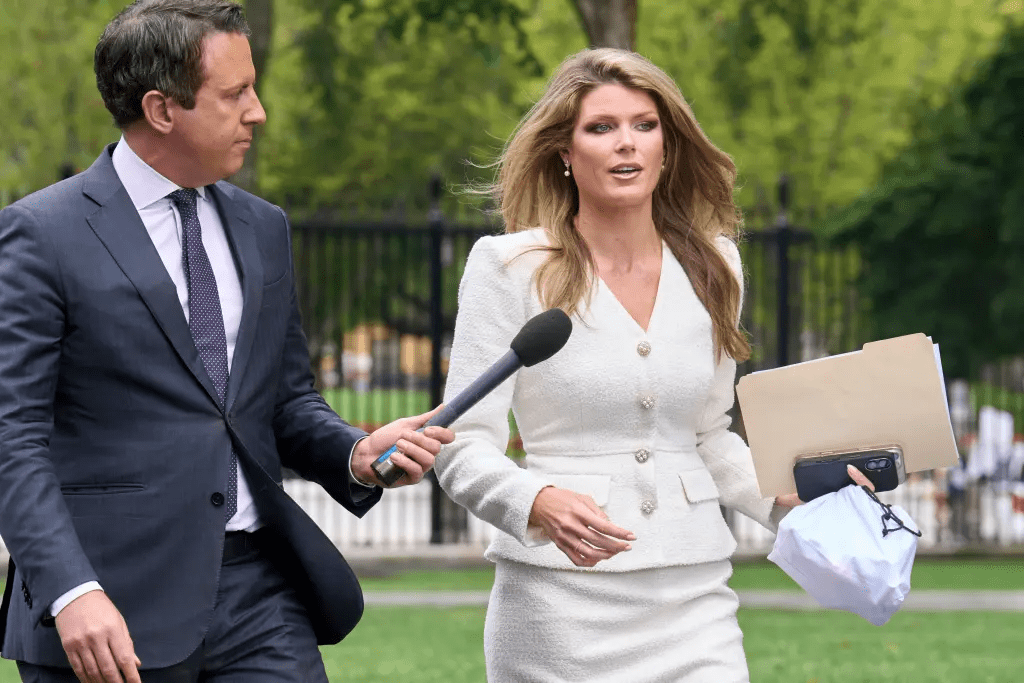
Parallel to James’ plight runs the quieter, more introspective torment of James Comey, the towering ex-FBI chief whose 2017 firing by Trump ignited a firestorm of recriminations that still smolders. Indicted in June 2025 on a single count of lying to Congress, Comey faces accusations he misled a 2020 Senate Judiciary Committee hearing by denying he’d authorized leaks to the media about his probe into Hillary Clinton’s private email servers—a probe that became the backdrop to his own ouster and the Russia investigation that followed. Pleading not guilty with the dignified restraint of a man who’s penned bestsellers on ethical leadership, Comey sat in the gallery Thursday, flanked by his wife, Patrice, and daughter Maurene— the latter a former Manhattan U.S. Attorney unceremoniously booted by the Trump administration earlier that year in a purge of perceived holdovers. His attorney, Patrick McDowell, channeled the elder statesman’s gravitas: “Mr. Comey has served this country with honor; this prosecution is a blatant abuse of power.” A conviction here? Five years in prison and a $250,000 fine—penalties that, while lighter, carry the heavier burden of tarnishing a career defined by moral reckonings, from the Clinton emails to the fateful memos that fueled Trump’s impeachment saga. Both trials loom in January 2026, a dual reckoning that underscores the administration’s vow, echoed by Attorney General Pam Bondi in her February confirmation: “No one is above the law—not prosecutors, not directors, not even those who once wielded it as a weapon.”
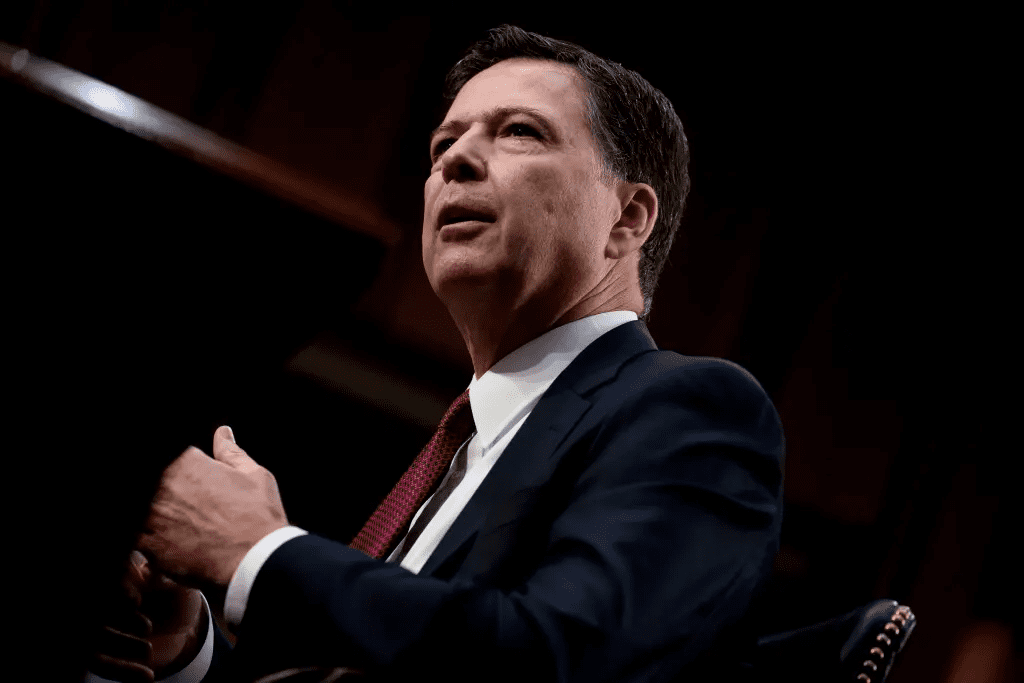
At the heart of the fray pulsed the legal linchpin: Halligan’s legitimacy, a question that peeled back layers of the Appointments Clause like an onion revealing raw nerves. The dispute boils down to a 120-day interim appointment window under federal statute, with James and Comey’s teams insisting Bondi overstepped by installing Siebert in April 2025, then swapping in Halligan after his July resignation—allegedly because he balked at greenlighting the Comey probe. “This gives the attorney general perpetual ability to sidestep the Senate,” Lowell thundered, invoking hypotheticals of outsiders like Steve Bannon or Elon Musk wielding unchecked prosecutorial power. Whitaker, Halligan’s steadfast deputy, parried with calm authority: “The attorney general is entitled to multiple 120-day appointments,” brushing off the doomsday scenarios as “fanciful.” Currie, her Clinton pedigree notwithstanding, probed with the precision of a surgeon: “Do you believe that U.S. versus Trump was wrongly decided?”—a nod to the Florida ruling that gutted Smith’s case. Historical precedent loomed large; as she noted, for 200 years, judges—not attorneys general—filled these roles, a power Congress shifted in 1986 amid Watergate’s ashes. The judge’s tone, laced with doubt toward the government’s stance, suggested a lean toward dismissal, a pre-Thanksgiving gift that could echo the Trump exoneration and hobble Bondi’s early tenure.
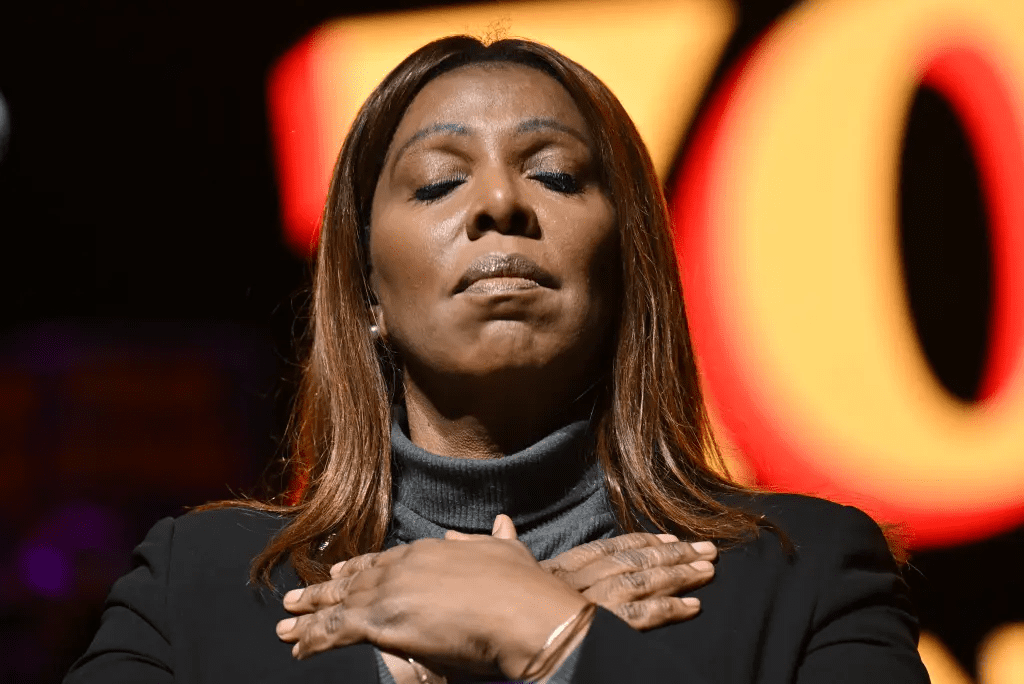
Yet, for all the procedural jousting, this hearing stirred deeper currents—a nation’s collective exhale after years of what many Trump supporters call “lawfare’s dark chapter.” Picture the families in Trump’s orbit, from Mar-a-Lago loyalists to heartland voters who mailed checks during his darkest hours, their quiet cheers for a system finally turning inward. Bondi’s office, in a post-hearing statement, stood firm: “These cases uphold the highest standards for public officials; we trust the court will see the merit.” Critics, from the ACLU to Senate Democrats like Chuck Schumer, decried it as “retribution theater,” with Schumer tweeting mid-hearing: “Weaponizing the DOJ against political foes erodes democracy itself.” Balanced against that, voices like House Judiciary Chair Jim Jordan hailed Halligan as a “beacon of integrity,” her pageant roots—a Miss Virginia Teen USA crown in 1999—now reframed as the poise of a warrior queen. Halligan’s pre-Trump life, litigating insurance claims in Richmond, lent her an underdog allure, her White House stint under Trump sharpening her into a blade for accountability.
As the hourlong session wrapped—Currie promising a swift ruling—the courtroom emptied into a crisp November afternoon, leaving behind the faint scent of polished wood and unresolved tension. For James, it’s a limbo laced with legacy’s fragility: the Brooklyn native who championed tenants’ rights now fighting to keep her own roof intact. For Comey, a reflective pause in a life of leaks and legacies, his presence with family a poignant reminder that even titans lean on loved ones. And for Halligan, silent sentinel of the administration’s pledge, it’s a test of fortitude in a role that demands more than law— it calls for the quiet courage of believing in a justice that serves all, not just the powerful. Whichever way Currie tips the scales, this Virginia vignette captures the emotional ebb of an era in flux: relief for the redeemed, resolve for the righteous, and a gentle hope that from these clashes, a fairer dawn might emerge. In Trump’s America, where yesterday’s hunters become today’s hunted, the true victory lies not in the verdicts, but in the unyielding pursuit of truth—a flame that flickers brighter with every hearing adjourned.

